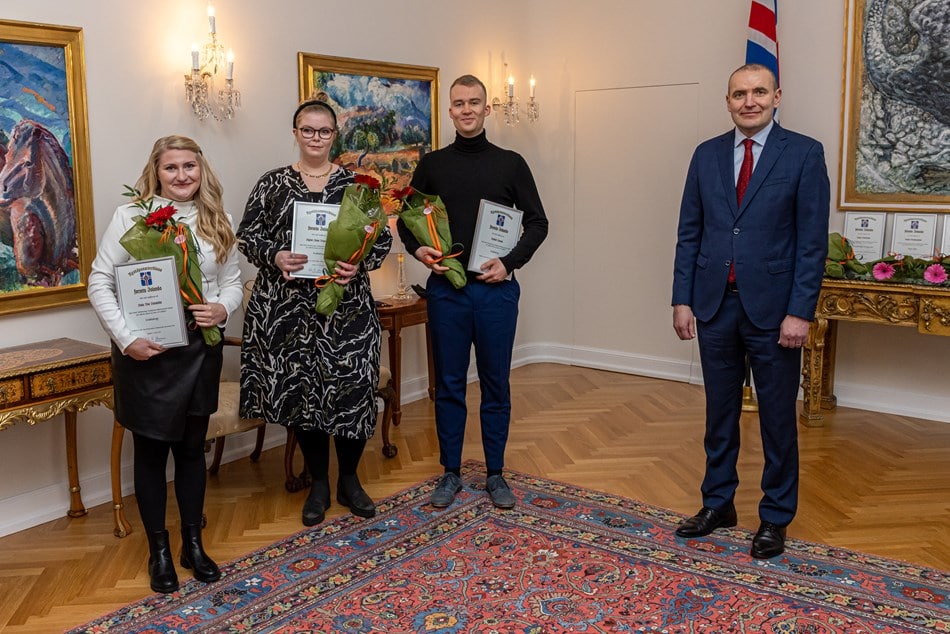The Krakkakropp project was nominated for the President of Iceland's Innovation Award. The project was funded by the Student Innovation Fund and was carried out in connection with the project "Improved quality, shelf life and less waste in the vegetable value chain" at Matís. Krakkakropp is ready-made baby food made from Icelandic vegetables.
The project was carried out by Arnkel Arason, Sigrún Anna Magnúsdóttir and Vaka Mar Valsdóttir, students in food science at the School of Health Sciences at the University of Iceland. The supervisor was Ólafur Reykdal, project manager at Matís.
The President of Iceland's Innovation Award was presented on 10 February. The award went to the project "Better intensive care with a data monitor. "
The President of Iceland's Innovation Award is given annually to those students who have done outstanding work in solving a project that was funded by the Student Innovation Fund the previous summer.
Krakkakropp was among 6 projects nominated for the award and received special recognition. This is considered a very good result as a number of projects were considered. Following the project, students have now founded the company Sifmar ehf. The company has also received additional grants, students have participated in business and marketing accelerations and Landsvirkjun has invested in the company.

Further information about the project:
Krakkakreistur and Krakkakropp: Icelandic baby food.
The project was carried out by Vaka Mar Valsdóttir, Sigrún Anna Magnúsdóttir and Arnkel Arason, students in food science at the School of Health Sciences at the University of Iceland. The supervisor was Ólafur Reykdal, project manager at Matís. The trigger for the project was a big hole in the market, but at the moment no ready-made Icelandic baby food is available. At the same time, imports of foreign baby food increase by hundreds of tonnes annually.
Iceland has green energy, sustainable production, clean water, excellent raw materials and the negligible use of pesticides in vegetable production. Therefore, we in Iceland have full capacity to produce good and healthy baby food for our children.
The students' ideal was to use their learning experience to develop prototypes of Icelandic baby food that could be produced responsibly with environmental considerations and hygiene in the forefront. Children's public health is an urgent problem, but approx. a quarter of Icelandic children measure their ideal weight. It is therefore important to respond with healthy and suitable solutions for families with children. Food waste has a huge impact on climate change, but about 45% of the world's vegetables are considered to be wasted. In collaboration with Sölufélag garðyrkjumanna, the students developed baby food from, among other things, vegetables that are either too small, too big, curved or broken. Such vegetables would not be useful in traditional sale products but are otherwise of perfect quality and therefore ideal for the production of mashed and dried baby food.
At the end of the project, five prototypes remained Kids' circles - suitable baby food in bags and three prototypes of Kids body - pediatric nasal congestion.
Following the project, students have now founded the company Sifmar ehf. The company has also received additional grants, students have participated in business and marketing accelerations and Landsvirkjun has invested in the company. During the day at Sifmar ehf. is an ongoing financing process so that safer and more environmentally friendly production can be offered in this country.
It can therefore be said with truth that Icelandic production, sustainability, children's public health, combating food waste, positive environmental impact, agriculture and technological development are all issues that affect the project and go hand in hand with the United Nations' global goals.
